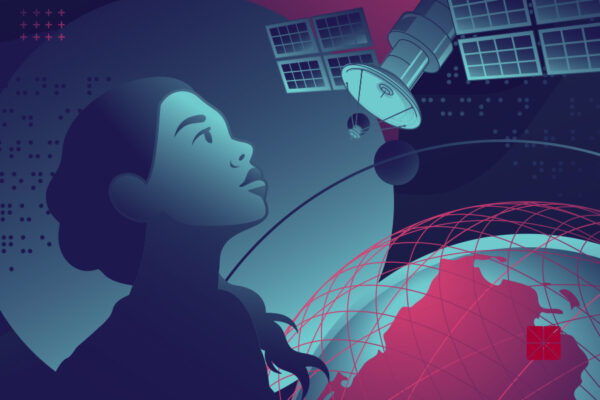 Seth Benzell’s recent work on economic productivity caught the eye of the United Kingdom’s top financial minister.
Seth Benzell’s recent work on economic productivity caught the eye of the United Kingdom’s top financial minister.
Benzell and two co-authors published a research brief through MIT, “Understanding and Addressing the Modern Productivity Paradox.” In April 2023, Chancellor of the Exchequer Jeremy Hunt, who was launching a plan to revitalize the long-stagnant UK economy, met with them online to discuss it.
“His plan has a lot of the elements that we talk about in this paper,” says Benzell, an assistant professor in Chapman’s Argyros School of Business and Economics.
The paradox is that productivity hasn’t kept pace with technology. The paper highlights four theories and details how policymakers can spur growth.
Policy changes could include “increased investment in (research and development), increased immigration of high-skilled labor, boosts to our education system, and removal of bottlenecks to entrepreneurship and business innovation,” Benzell and his co-authors write.
We asked Benzell to tell us more about this research.
What is productivity, and why is it important?
Productivity is the amount of output, or GDP, that you get for a certain amount of inputs. So you get labor productivity by dividing all of the output in the economy by the amount of hours worked.
If you look across the world, what seems to matter for quality of life is having an economy with a high GDP per person. So if you’re in a country that has had stagnant output per person, such as a particular Anglophile nation that recently left the European Union, it might be really important for you to try to think of new ways to try to get your productivity up again.
How did you decide to write this paper?
My colleagues and I are very excited about how new technologies are changing the economy – for example, the role of automation in changing the nature of work that people do and the types of jobs that will be available. These are issues that I’ve been working on for a long time, both from the management science side and on the macroeconomic side.
However, these exciting new technologies haven’t been showing up in the GDP statistics that people typically use to measure economic growth. We wanted to communicate to the public and policymakers why that might be happening, and what the research says about how it could be improved.
What are the important recent developments in AI?
Until the last decade or so, AI systems have been held back by what’s known as “Polanyi’s Paradox.” This is the idea that humans intuitively know how to do things, like ride a bike or recognize a face, that we can’t explain how we perform in the step-by-step manner that computer programs have traditionally required. Innovations in both reinforcement, supervised and unsupervised machine learning have made it so machines can “learn” many things that we previously couldn’t explain to them how to do.
People have been working on unsupervised machine learning for a long time, but it hasn’t really emerged in the public consciousness until recently, as the substrate that all of these chatbots like ChatGPT are built on.
Unsupervised machine learning applies to a much, much broader universe of tasks. Why has AI recently entered the mainstream? It’s due to these systems getting better and better – in part simply because of being run on larger supercomputers, and also because of “fine-tuning”, which is using supervised and reinforcement learning on top of the unsupervised model, to help ChatGPT learn what kinds of answers humans find useful.
What impact were you hoping the brief would have?
There seems to be a really reasonable question for someone in the public to ask: “If everything’s so great, why has my wage not gone up?”
We wanted to explain to the general public as well as policymakers potential explanations for this productivity paradox. And we give what we think are the four most likely explanations. One explanation that I think plays an important role is that some innovations have taken the form of free digital goods, which create value that doesn’t show up in GDP. In ongoing research at Chapman I have been using our behavioral lab to study how students get value from connections on Instagram.
And then we talk about what we can do better as a society to translate these new technologies into broad and sustainable economic growth for everyone.
Are U.S. economists and policymakers also interested in your work?
One way that the government can play a positive role, we say, is in developing public infrastructure, because so much of what the government’s role can be is in enabling entrepreneurship and enabling people to come through with innovations. What does 21st-century infrastructure look like? It looks like broadband, creation of public data sets, fundamental R&D, clean energy, charging stations for electric cars.
After this paper came out I did a roundtable with the Orange County Chamber of Commerce, where we were talking about the positive impact on the economy 5G could have in the region. People at the chamber seemed really on board.
The dream is to have a local impact and a global impact.




